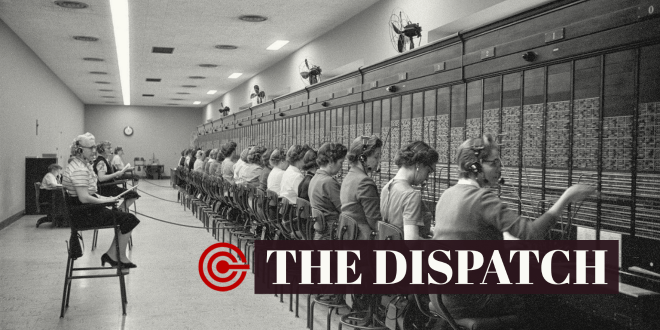The Dispatch – June 28/29: Performance Artists
Another Performance in Parliament Sparks Discord – Economy Minister Hints Policy Shift on HPP – Judges Rail at the “Foreign Meddling” – Pride Week: Safety Concerns and Invitation to Participate
Even though it’s been all about reforms in Georgia lately, years-long problems don’t seem to be going away. What has changed over the years is the form of protests as Georgian politicians came to embrace the performance art – less efficient perhaps, but at least (supposedly) more creative. Here is Nini with updates from Georgia.
The Dispatch is our regular newsletter. Subscribe and find us on Twitter: @DispatchCivil
NORTH COUNTRY BLUES
After nightclubs and cozy cafes, Georgia may be on its way to attract tourists as a new center of performance art: but in politics. Ever since the opposition joined the legislative work, hardly any parliamentary session passes without someone making a scene, ranging from the ruling party’s improvised retaliatory actions against the United National Movement’s caprices to well-prepared performance pieces staged by various opposition MPs. In the latest of such moves, UNM MP Nona Mamulashvili decided to play the Soviet anthem as lawmakers debated the Prime Minister’s annual report: shaming government policies through Soviet or Russian allusions is commonplace in Tbilisi political circus.
Otherwise calm Parliamentary Chairman Kakha Kuchava was quick to shame back with some outrage, decrying playing Russian anthem in “a place where Georgian Independence Act has been signed.” Ironically, it was one of his predecessors from the same ruling party who lost his position over the controversy of a Russian lawmaker sitting in his chair. Beware of the North!
MORE SHARE FOR THE STATE
Reports that the Georgian government was going through a complex, expensive and protracted process of exiting the 2011 investor agreement over Khudoni HPP planned to be built in the Svaneti region, western Georgia, caught some attention: the longstanding project has met protests over the past decades, and the recent revelations came into the spotlight amid the ongoing protests and talks over similarly large-scale Namakhvani hydropower project. Some critics saw the troubled Khudoni contract termination process as yet another example of how liberal-minded contracts benefit the investor.
Making clarifications on June 28, Economy Minister Natia Turnava said that both the state and “Indian” company Trans Electrica Ltd., the key investor in the Khudoni project, were in favor of ending the deal after 10 years of delays in implementation due to unspecified “objective and subjective reasons” involving both parties. The government allegedly had to hire foreign firm Hogan Lovells International LLP to facilitate the termination of the deal, but costly extensions of service became necessary as parties so far have failed to agree.
Policy Shift? The end of the agreement does not mean the end of the project though since Minister Turnava said that government will consider the ways in which the “large strategic project” will be implemented in the future. Most importantly, the Minister responded to the spirits of Rioni Valley/Namakhvani protests, saying that “recent developments have demonstrated that the state needs to participate more in the implementation of the mega-projects of such types, or at least be the partner in similar projects.”
ONLY DOMESTIC MEDDLING ALLOWED
Up to 310 judges of Georgian common courts released on June 28 a statement, expressing concerns over “politically motivated, overly unhealthy processes aimed at discrediting the judicial authority and directed against its independence.” Citing polls and rankings, judges pointed at “fundamental progress attained in the judiciary” and high public confidence enjoyed by courts. Earlier, during the drafting process, Dimitri Gvritishvili, member of the High Council of Justice, was even quoted citing “views” among certain judges that “actions of representatives of [Georgia’s] strategic partner countries do not meet the principles of relations with a democratic, law-governed, and sovereign state” – alluding on growing international criticism which again intensified recently as a response to supreme court appointments regarded as rushed ahead of judicial reforms foreseen by the April 19 Agreement.
Over the past years, there has been vocal criticism, both locally and internationally, against so-called “clan rule” in the Georgian judiciary, referring to a small government-loyal group of influential judges calling the shots in the judicial process. As self-defense, judges have been claiming that “the judicial authority has never been so independent in Georgia as today.” They may have a point, considering that it has not been any better earlier: observers believe the clan has been there since the United National Movement rule and managed to maintain their grip on the institution through masterfully switching the allegiance with the change of power.
JOIN IN!
As pride week and a “March of Dignity” planned by LGBTQI activists nears, concerns over the safety of participants grow, particularly as a counter-rally by hate groups are planned and top ruling party figures failed to give enough protection assurances, transferring the responsibility instead on organizers. A letter addressed at Interior Minister Vakhtang Gomelauri and signed by 30 MEPs came out on June 28, calling on the Minister to protect activists and their freedom of expression and slamming the blame-shifting remarks by ruling party chairman Irakli Kobakhidze.
Georgian opposition lawmakers, too, were critical of the government on the matter but went further to call on the top officials to personally join the march – something that is very unlikely to happen. In remarks calling on President Salome Zurabishvili to attend the pride, UNM’s MP Roman Gotsiridze was quoted as saying that President “dresses nicely, so let her put on a rainbow-colored scarf, take her personal priest by the hand and show him civic self-consciousness.” Have you noticed that everything about the President – be it good or bad – revolves around what she is wearing?
- Public Defender’s 2020 Human Rights Report
- Ombudsperson Enters Church-Run Orphanage Following Controversy
- EU Foreign Ministers Hold Press Conference After South Caucasus Visit
That’s the full lid for today. Celebrate the bizarre and the curious in Georgia’s politics with us every Monday, Wednesday, and Friday!
